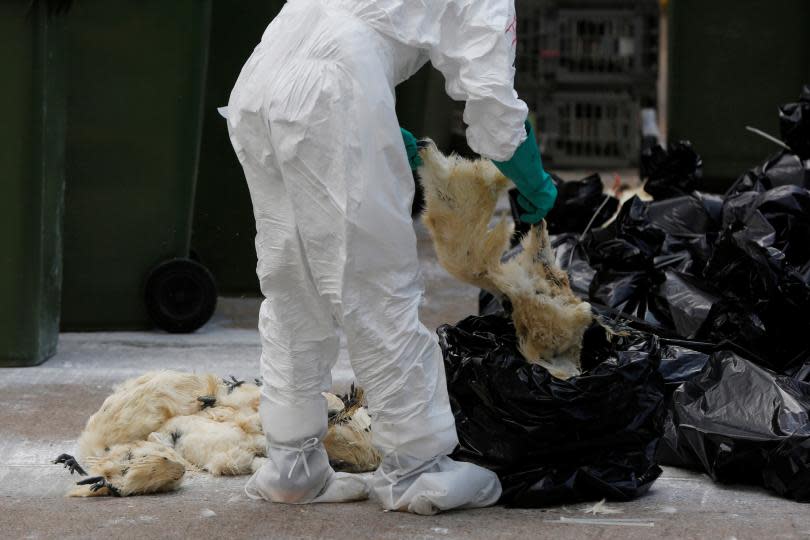Europe Slaughters Birds To Slow Avian Flu Epidemic
Countries across Europe are taking precautions to prevent a bird flu epidemic after highly infectious cases of the disease have appeared in multiple areas. Officials in Finland found cases of avian influenza in wild birds on the Aland Islands in the Baltic Sea Thursday. On Saturday, authorities in the Netherlands killed 190,000 ducks after the virus struck. Wild ducks in Northern France were slaughtered in an effort to contain a highly infectious strain of the flu Monday.
"A first case of highly pathogenic avian influenza H5N8 was confirmed on Nov. 26 in a commune of Marck, Pas-de-Calais, on 20 wild ducks used as callers for waterfowl hunting," France's farm ministry said in a statement Monday.
France has the largest poultry stock in the European Union. An outbreak of bird flu in southeastern France earlier this year decimated poultry flocks and stopped much of the country's output.
Highly pathogenic strains of bird flu, though rarer, are greater cause for concern than low pathogenic strains. They are often fatal for birds, spread more easily and rapidly and have a higher rate of mortality upon infection. In 2015, a highly pathogenic outbreak swept 21 states in the U.S. and affected more than 50 million birds, driving the price of eggs up by 80 percent. The disease was last detected in the U.S. in June 2015.

A health officer puts culled, bird flu-infected poultry in a plastic bag at a wholesale market in Hong Kong, Jun. 7, 2016. Highly pathogenic strains of the flu have now been found in France, the Netherlands and Finaldn. Photo: Reuters
The effect of avian flu on poultry populations and the economy aren't the only dangers of such an epidemic. Though it is rare, the disease can be transmitted to humans from an infected bird, causing symptoms ranging from low-grade fever to pneumonia or an altered mental state and seizures. Transmission from person to person is even rarer. The mortality rate for a human with bird flu is 60 percent, according to the World Health Organization.
"Because of the possibility that avian influenza A viruses could change and gain the ability to spread easily between people, monitoring for human infection and person to person transmission is extremely important for public health," the Centers for Disease Control and Prevention said in a statement about the virus on its website.
Related Articles


